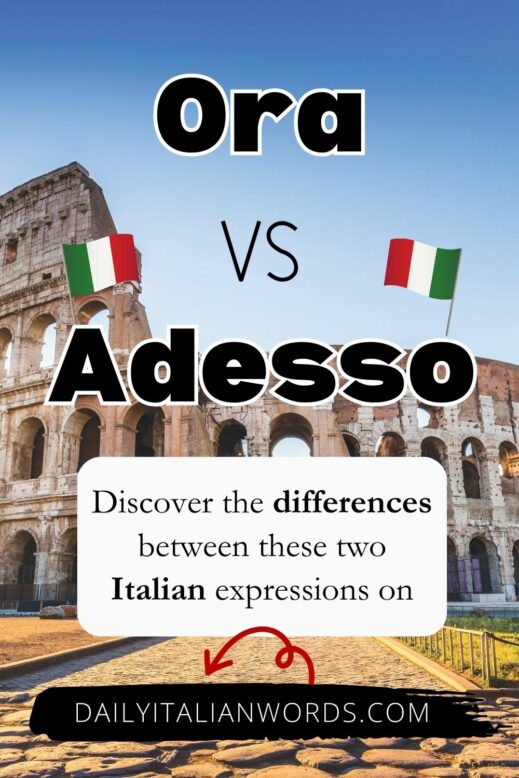In Italian, there are two main ways you can translate the word now. One is ora and the second is adesso.
ora
adesso

For all intents and purposes, ora and adesso are synonyms in modern day Italian, and swapping one for the other will rarely sound strange to the native ear. Ora derives from the Latin hora (“hour”) whereas adesso comes from ad ipsum (“in this moment”).
Ora ho un appuntamento. Ti chiamo più tardi.
I have an appointment. I’ll call you later.
Ti chiamo più tardi. Ho un appuntamento adesso.
I’ll call you later. I have an appointment now.
That being said, there are a couple of subtle differences worth taking into account.
The first is that adesso is more commonly heard in the north of Italy, whereas ora is more popular around Tuscany. (A third very regional variation, mo’, is prevalent in Rome and the south. It is also an archaic form of now, appearing numerous times in the Divina Commedia.)
A second difference noted by famous Italian linguist, journalist and essayist Niccolò Tommaseo in his book Nuovo dizionario de’ sinonimi della lingua italiana is that:
- ora concerns the present moment, or moments close to the present, as well as a shorter range of time
- adesso concerns the present as it relates or compares to the past
This is best explained by comparing the examples Adesso capisco! and Ora capisco! Whereas the former implies that up until that moment, you didn’t understand, the second emphasises the fact that you understood at the last minute.
Finally, although far from a set rule, ora tends to appear more often at the beginning of sentences. For example:
- Ora non ho più soldi. (sounds better)
- Non ho più soldi ora. (not incorrect but not as common)
Note: You can place the adverb proprio (exactly, precisely) in front of either word to change their meaning to right now.
All these subtleties aside, the truth is that no one will blink an eye if you use ora instead of adesso or vice versa. More often than not, it is purely a matter of personal preference.
Heather Broster is a graduate with honours in linguistics from the University of Western Ontario. She is an aspiring polyglot, proficient in English and Italian, as well as Japanese, Welsh, and French to varying degrees of fluency. Originally from Toronto, Heather has resided in various countries, notably Italy for a period of six years. Her primary focus lies in the fields of language acquisition, education, and bilingual instruction.


